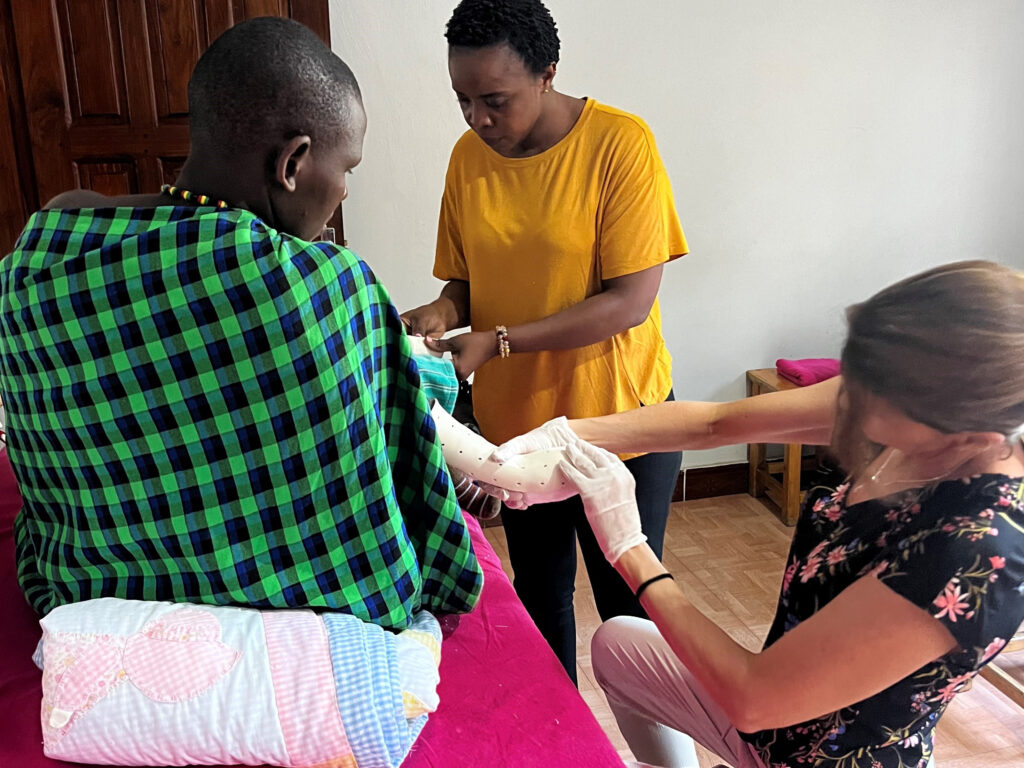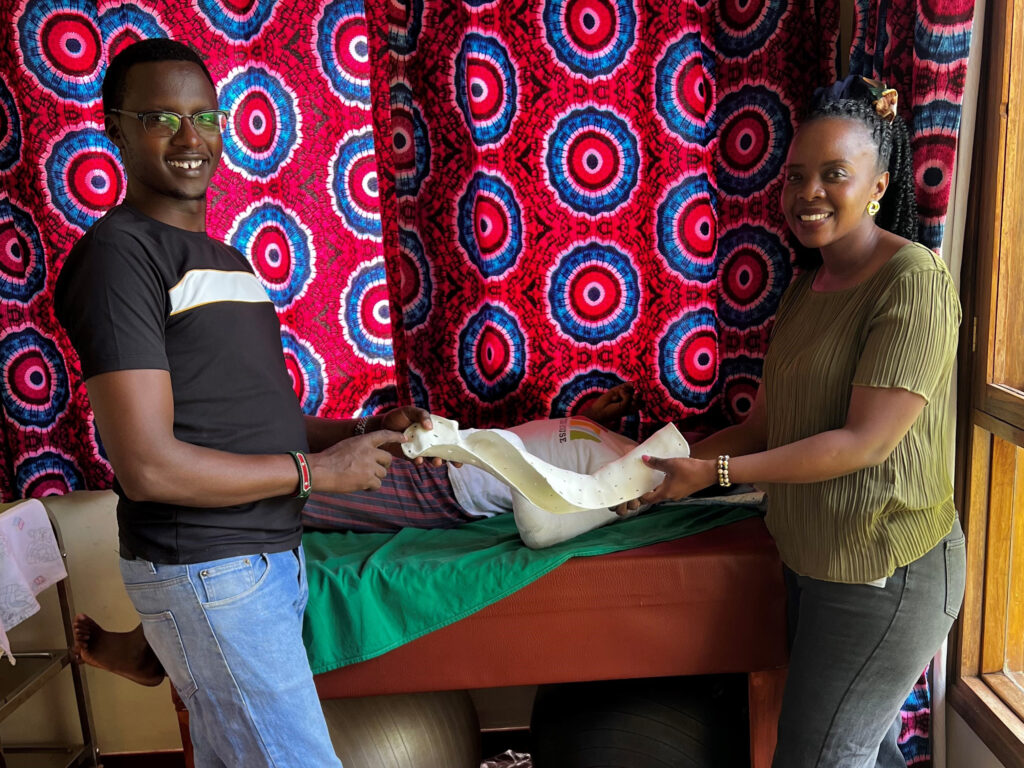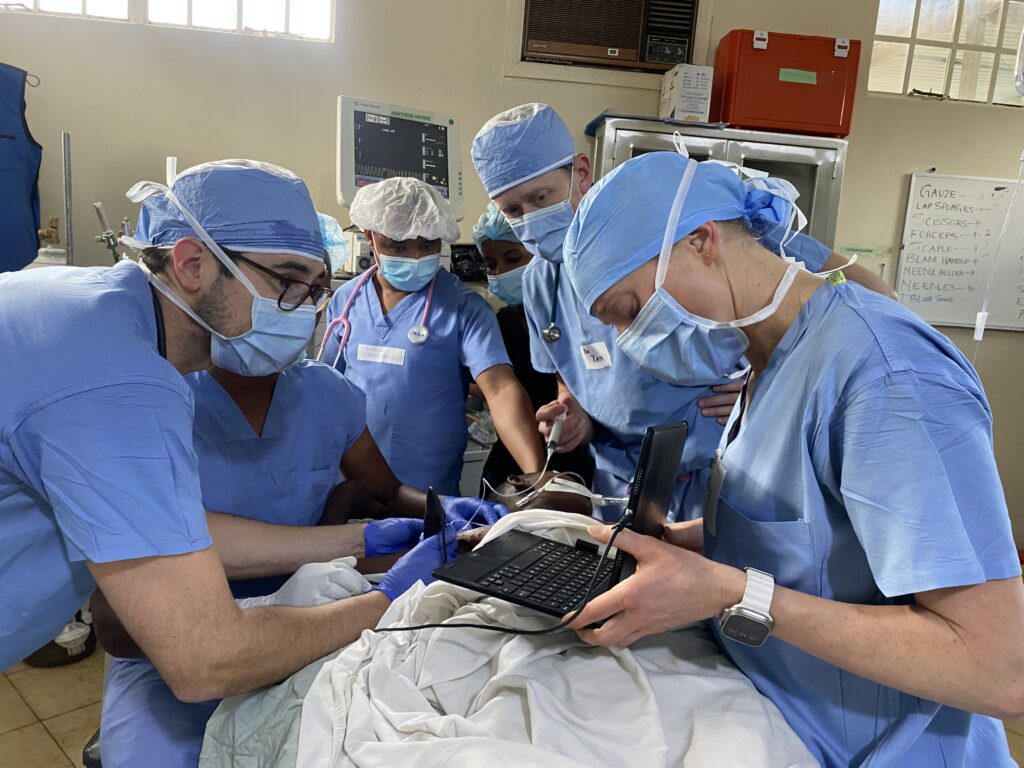GLOBAL INVOLVEMENT
SUPPORTING OUR COMMUNITIES
TANZANIA
Dr. Adam Bakker | TCOF Board Member
“How can we improve?”
It’s a simple question in theory. It’s a question I focus on continuously at TCO, through developing my surgical techniques, advancing education, working on systems-based improvements, and collaborating with other medical professionals. However, working halfway across the world in a resource-limited country like Tanzania, this relatively straightforward question becomes tremendously difficult.
For the past eight years, I have been doing medical service work in Arusha, Tanzania, through the Kafika/Plaster House, a nonprofit organization. The work primarily involves children who develop life-altering burn scar contractures, many under the age of five. Burns are very common in Tanzania. Fires are used for boiling water for drinking, cooking, heating, and even as a mosquito deterrent. These fires are typically made in open pits in the center of circular mud huts, about the size of a medium-sized icehouse. The open pits are not protected, and accidents are common.
On my first medical service trip to Tanzania, the severity of the burn scar contractures was beyond anything I could have imagined. I was humbled. I had never seen anything like it anywhere during my training, and had never read about burn scar contractures of such severity. The burns were so severe that they distorted the anatomy.
However, with the guidance of a group of four physicians from Denver, who have been traveling together to Tanzania for more than 25 years to treat burns, I was educated, and my skills improved significantly during my first three years there. I am now able to work with and help train Tanzanian physician residents in surgery.
Over the past four to five years, I’ve returned my focus to the question: “How can we improve?”
One area quickly became apparent: anesthesia care. In Tanzania, there are nurse anesthetist-like personnel, but their level of training is significantly less than what we are accustomed to. The capabilities and attention to detail in anesthesia care are often lacking. Operating with one eye on the surgery and the other on the portable oxygen and heart monitors is tremendously stressful. Many of the children have lungs compromised by smoke exposure from indoor fires, and they often present with a variety of less-than-ideal health conditions. Nerve blocks, which we heavily rely on for postoperative pain control, were missing. The time required to induce and especially to recover from anesthesia was significant. Improvements were clearly needed.
Over the past three years, we have been able to bring a team of anesthesiologists from our Ambulatory Surgery Centers, starting with Dr. Erik Egeland, followed by Dr. Emily Schmidt and Dr. Xan Jacobs. Their contributions have been remarkable. Providing safe and efficient anesthesia care has been tremendously impactful. In addition, they have been active in teaching Tanzanian anesthesia staff. Their impact has been noticeable, leading to significant improvements in safety, efficiency, and education.
Another area identified for improvement was post-surgical hand therapy. As a hand surgeon, I know many of our outcomes are directly correlated with the quality of hand therapy. Alli Mikota, a certified hand occupational therapist, has joined our team over the past few years. Her impact has been profound, both in the direct care of patients and in educating the Tanzanian staff. The expertise she provides has led to significant improvements in the children’s functional outcomes during her visits, but just as important, to long-term success through the education she provides to local staff.
The contributions from Dr. Egeland, Dr. Schmidt, Dr. Jacobs, and Alli Mikota have led to tremendous improvements in both patient safety and outcomes. Their dedication to education has also created lasting improvements that will benefit the community for years to come.
The next question is: “How can we continue to improve?”
Tanzania Kafika House
FriendsOfKafikaHouse.org



